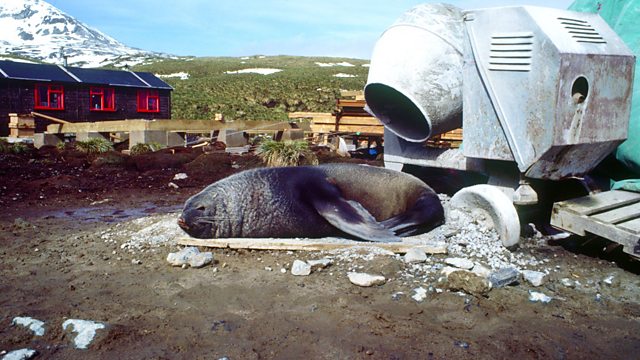Albatross and Fishing
Measures have been in place for some years to help stem albatross by-catch from the long-line fishing industry. Shared Planet looks at the success of their conservation.
Albatrosses are giant flying seabirds that inhabit the southern oceans. Many species have been studied intensively over decades on their breeding grounds in the sub-Antarctic and the Pacific. Clever studies involving satellite tracking and simple observations from ships have shown they can disperse and forage across the whole of the southern ocean. Monitoring of their populations has shown a marked decline in their numbers since the 1980's so much so all albatross species are now threatened. A key cause of albatross decline was found quickly after the decline in populations was noticed; long-line fishing hooks baited with squid and floating on the surface after being deployed was an easy meal for an ocean scavenger and often their last. Shared Planet visits this story many years after it broke to report a cautious success on the high level conservation measures that were put in place involving biologists and the fishing industry. On this trajectory, it seems, we might be able to share the ocean with albatrosses and catch fish.
Last on
More episodes
Previous
Next
Alastair Fothergill

In addition to his work with the ΒιΆΉΤΌΕΔ Natural History Unit, Alastair has co-directed two cinematic movies for Disney as part of their Disneynature label. He set up Silverback Films in 2012 and is currently making βThe Huntβ, which looks at the relationships between predators and their prey.
Alastair is fellow of the who awarded him their gold medal in 2012. He has honorary doctorates from the Universities of Durham and Hull.
Dr Richard Phillips

The British Antarctic Survey (BAS) has helped carry out long-term population studies of albatrosses and petrels at Bird Island dating back to the early 1960s for wandering albatross, the 1970s for grey-headed and black-browed albatrosses and the 1990s for light-mantled sooty albatrosses and giant petrels.
BAS also carries out a variety of dedicated studies, integrating conventional observational techniques with the latest in tracking and logging technology, and molecular and stable isotope analysis. A large component of the current research is directed at addressing the declines in albatross and petrel populations as a result of incidental mortality in longline and trawl fisheries.
Ben Sullivan

His research analyses devices to scare birds from behind longliners and trawlers, and aims to develop and evaluate new technology to prevent birds accessing hooks. The project also tests innovative line weighting to increase the sink rate of longline hooks as they leave the vessel.
Dr Sullivan received a PhD from the University of Queensland. Prior to his current position with the RSPB - the UK partner of BirdLife International - he served as project manager for the Seabirds at Sea Team of . He has been involved in the implementation of the for many years, and he is also actively involved with the work of the (ACAP).
Russell Hall
In the past, he says, his concern was maintaining the hake quota but now thatβs just one small part of a much bigger equation. He argues that businesses have to deal with every aspect of sustainability in order to stay in the fishing business for the long term.
Broadcasts
- Tue 28 Oct 2014 11:00ΒιΆΉΤΌΕΔ Radio 4
- Mon 3 Nov 2014 21:00ΒιΆΉΤΌΕΔ Radio 4
Learn about habitats with The Open University
Explore the twists and connections of natural life in four different UK habitats.

